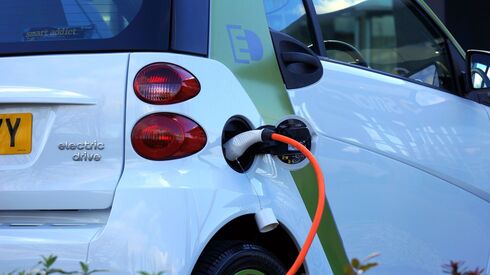
Charging ahead
23 November 2021

Boris Johnson confirmed yesterday that new homes and buildings such as supermarkets and workplaces will be required to install electric vehicle charge points from next year under new legislation.
Such regulations had been expected – indeed, they were mentioned on the blog in September. They will also apply to buildings undergoing major renovation which leaves them with more than 10 parking spaces.
The Government says that up to 145,000 extra charge points will be installed across England each year in the run-up to 2030, when the sale of new petrol and diesel cars will end in the UK.
Speaking at the CBI (Confederation of British Industry) annual conference, the Prime Minister added: “We are investing in new projects to turn wind power into hydrogen and our net zero strategy is expected to trigger about £90 billion of private sector investment.”
The government says that there are currently over 250,000 home and workplace charge points, and so the planned acceleration under the new legislation means many more will be created – more than 1 million by 2030 if the expected installation rate is achieved.
That’s good news for the installers and for the hirers supplying them with the necessary tools and equipment.
However, you can be sure that Treasury boffins have also been hard at work devising a way of taxing the electricity consumed. As drivers switch away from petrol and diesel, the government will need to replace the fuel duty it currently receives (a whopping 57.95p per litre).
With an expected 1 million-plus motorists charging at home or in the workplace within eight years, that’s a lot of potentially lost revenue.
One suggestion is that drivers should pay so much per mile, calculated via a black box in the vehicle or some kind of toll system.
Also, as reported in September, under the Automated and Electric Vehicles Act of 2018 any new car charge point must be able to send and receive data. It must be able to log the amount of electricity going specifically into a car battery, as against other appliances like washing machines, kettles or lighting. And that means a specific tax can be charged at source.
The Treasury will doubtless want to see new electric taxation arrangements in place as soon as possible. And with gas and electricity costs in an upward spiral, the energy price cap under pressure, petrol and diesel prices (and fuel duty take) at record highs, and a central bank that seems unusually tolerant of high inflation, its generosity will surely be tested.
● For other Site-Eco stories click here.

